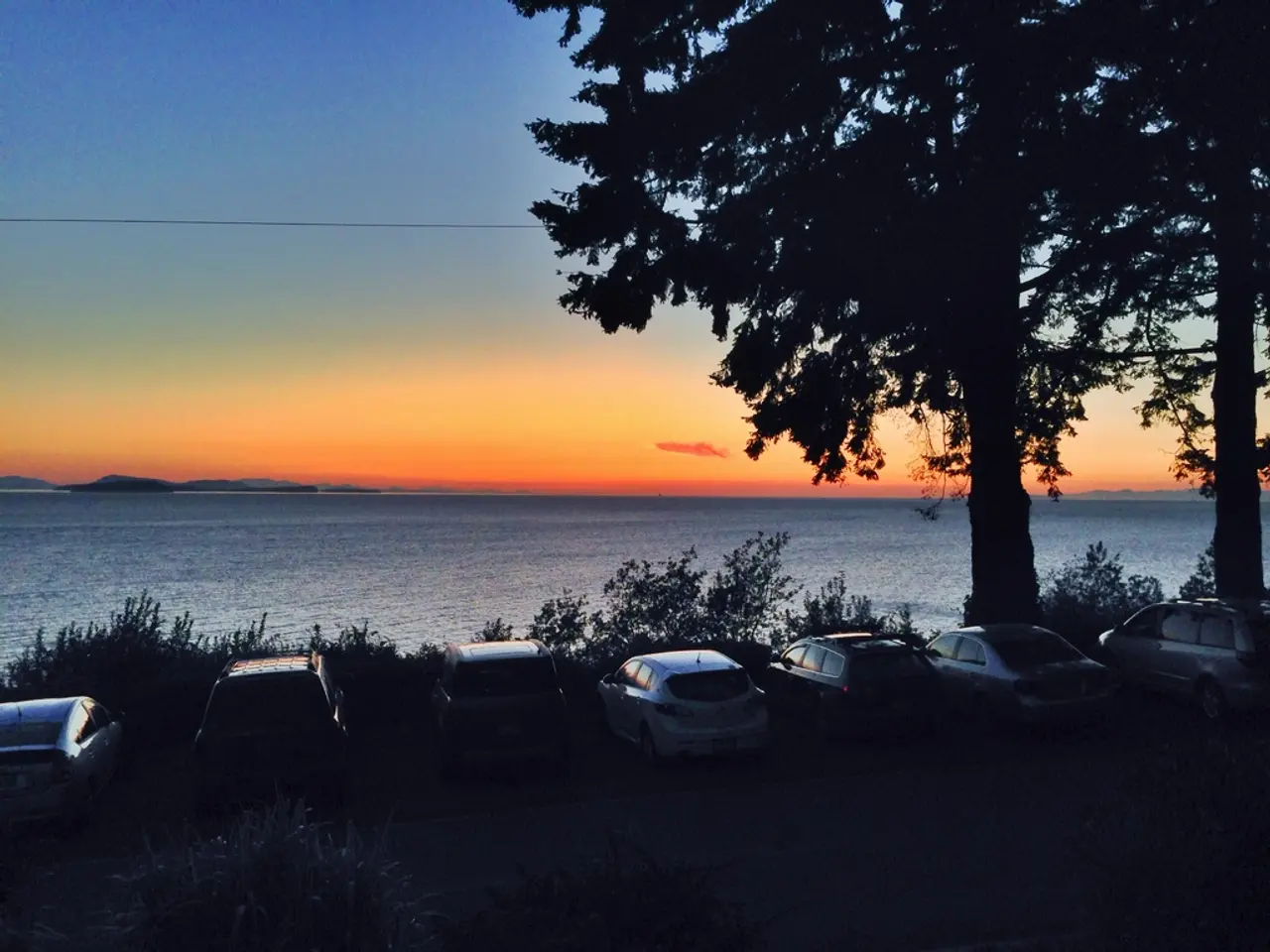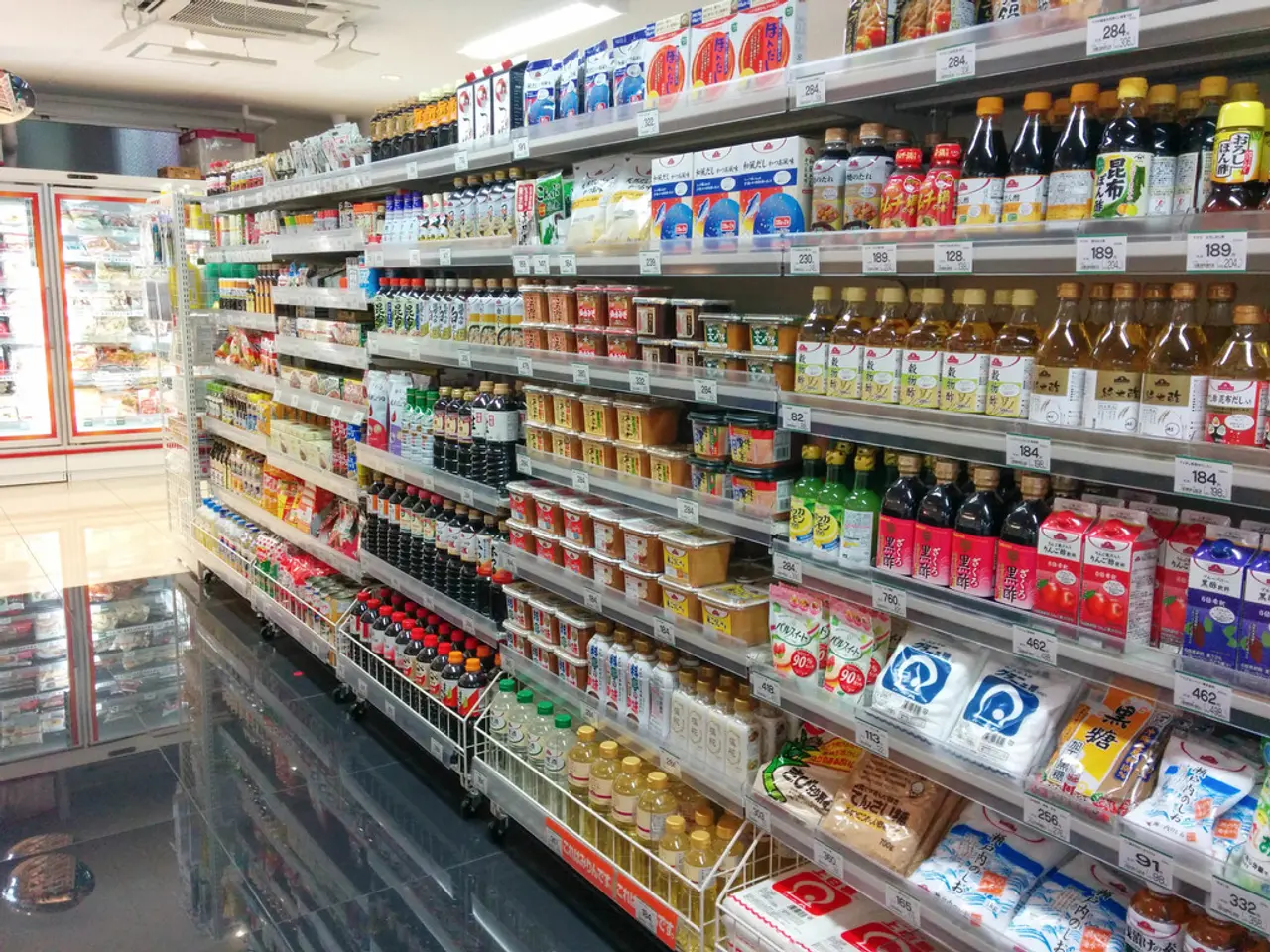Domestic Space Heating
In North Rhine-Westphalia, Germany, the shift towards renewable energy for heating and cooling in private households is accelerating, thanks to government incentives and technological advancements.
Technological innovations, such as heat pumps, solar thermal systems, and aquathermal energy, are gaining popularity. Heat pumps, for instance, can efficiently generate heat from renewable sources like air, ground, or water. This eco-friendly technology is becoming increasingly attractive to homeowners, offering a sustainable alternative to traditional heating methods.
The German government has also played a significant role in promoting renewable energy adoption. Subsidy programs for renewable energy systems like photovoltaic (PV) systems and solar thermal systems are available in federal states, including North Rhine-Westphalia. These programs help homeowners offset the initial investment costs of transitioning to renewable energy sources.
However, the current landscape still shows room for improvement. In 2022, only 4.4% of private households in North Rhine-Westphalia primarily used renewable energies for heating, while gas and heating oil accounted for 74.8% of primary heating sources. To meet climate goals and further integrate renewable energy into heating and cooling systems, several future requirements are anticipated.
One of the key challenges is increasing the adoption of renewable heat systems such as heat pumps and solar thermal systems in private households. Policies and incentives will be crucial in encouraging this transition. Another essential aspect is grid integration and energy efficiency, which includes optimizing energy storage and smart grid technologies to manage the variability of renewable energy sources.
Reducing the cost of renewable energy technologies and making them more accessible to a broader range of households will also be crucial for achieving widespread adoption. This might involve further subsidies, financing options, or advancements in technology that reduce costs.
Municipal and regional planning will need to support the integration of renewable energy systems by ensuring that zoning regulations and building codes accommodate these technologies. Coordination between local authorities and homeowners will be vital to ensure that new developments are designed with renewable energy integration in mind.
Looking ahead, the German government has finalised the "Heating Law," which could be passed by the majority supporting the government in parliament. Starting from January 1, 2024, it will be prescribed to use renewable energies in heat or cooling generation for new installations in North Rhine-Westphalia. This legislation aims to reduce carbon emissions and promote a more sustainable future for energy consumption.
However, the changes initiated by the "Heating Law" have sparked protests due to concerns about their perceived unnecessary nature, potential costs, and timing, as the economy faces declining prosperity and rampant inflation.
For those interested in staying updated on societal developments, culinary arts, art, and culture in Neuss, a new subscription service for a newsletter will be available starting from July 1, 2023. The newsletter is free of charge and can be subscribed to through a provided link. Subscribers will receive emails at an undisclosed frequency, and the service does not send spam emails. The Privacy Policy can be accessed through a provided link and offers information on the handling of personal data for the newsletter subscription.
Sources: [1] https://www.energiewende-wissen.de/themen/warmwasser-und-warmwasser-erzeugung/ [2] https://www.energiewende-wissen.de/themen/warmwasser-und-warmwasser-erzeugung/ [3] https://www.energiewende-wissen.de/themen/warmwasser-und-warmwasser-erzeugung/ [4] https://www.energiewende-wissen.de/themen/warmwasser-und-warmwasser-erzeugung/ [5] https://www.energiewende-wissen.de/themen/warmwasser-und-warmwasser-erzeugung/ [6] https://www.energiewende-wissen.de/themen/warmwasser-und-warmwasser-erzeugung/ [7] https://www.energiewende-wissen.de/themen/warmwasser-und-warmwasser-erzeugung/ [8] https://www.energiewende-wissen.de/themen/warmwasser-und-warmwasser-erzeugung/ [9] https://www.energiewende-wissen.de/themen/warmwasser-und-warmwasser-erzeugung/ [10] https://www.energiewende-wissen.de/themen/warmwasser-und-warmwasser-erzeugung/ [11] https://www.energiewende-wissen.de/themen/warmwasser-und-warmwasser-erzeugung/ [12] https://www.energiewende-wissen.de/themen/warmwasser-und-warmwasser-erzeugung/ [13] https://www.energiewende-wissen.de/themen/warmwasser-und-warmwasser-erzeugung/ [14] https://www.energiewende-wissen.de/themen/warmwasser-und-warmwasser-erzeugung/
- The eco-friendly technology of heat pumps, capable of generating heat from renewable sources, is gaining popularity in the realm of environmental science.
- Subsidy programs for renewable energy systems have been implemented by the government in policy and legislation, such as photovoltaic (PV) systems and solar thermal systems.
- To meet climate goals and further integrate renewable energy into heating and cooling systems, environmental-science innovations like grid integration and energy efficiency are anticipated.
- The cost of renewable energy technologies is a key factor in achieving widespread adoption, and measures such as subsidies, financing options, and technological advancements may help reduce costs.
- In the future, industry players, including municipal and regional authorities, must ensure zoning regulations and building codes accommodate renewable energy technologies for their adoption.
- The politics surrounding the "Heating Law" have ignited protests due to concerns about its costs, perceived unnecessary nature, and timing in the face of economic decline and high inflation.




